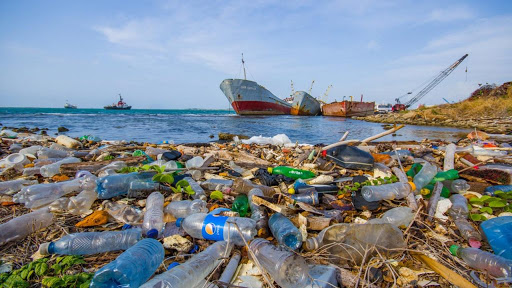Climate change: Five ways to reduce your plastic use
The new UN climate change report says human activities have caused damages to the earth that will be irreversible over hundred and thousands of years.
The report released on Monday by the Intergovernmental Panel on Climate Change (IPCC) states that sustained emission reductions will limit climate change but it could still take 20-30 years before global temperatures stabilise.
It also showed that unless there are immediate, rapid, and large-scale reductions in greenhouse gas emissions, limiting warming to close to 1.5°C or even 2°C will be unattainable.
“Many of the changes observed in the climate are unprecedented in thousands, if not hundreds of thousands of years, and some of the changes already set in motion—such as continued sea-level rise—are irreversible over hundreds to thousands of years,” the report states.
Advertisement
“However, strong and sustained reductions in emissions of carbon dioxide (CO2) and other greenhouse gases would limit climate change. While benefits for air quality would come quickly, it could take 20-30 years to see global temperatures stabilise.”
The report shows that emissions of greenhouse gases from human activities are responsible for approximately 1.1°C of warming since 1850-1900.
It also showed that on average, global temperature is expected to reach or exceed 1.5°C of warming in the next 20 years.
Advertisement
Hoesang Lee, IPCC chair, said the report helps to contribute significantly to climate negotiations and decisions for tackling climate change.
“This report reflects extraordinary efforts under exceptional circumstances. The innovations in this report, and advances in climate science that it reflects, provide invaluable input into climate negotiations and decision-making,” he said.
Additionally, the report projects that in the coming decades, climate changes will increase in all regions, stating that global warming of 1.5°C, will cause increased heat waves, longer warm seasons, and shorter cold seasons. While 2°C of warming would cause heat extremes to reach critical tolerance thresholds for agriculture and health.
Panmao Zhai, IPCC working group co-chair, said the changes experienced by the world will only increase with additional warming.
Advertisement
“Climate change is already affecting every region on Earth, in multiple ways. The changes we experience will increase with additional warming,” he said.
Advertisement
Add a comment






